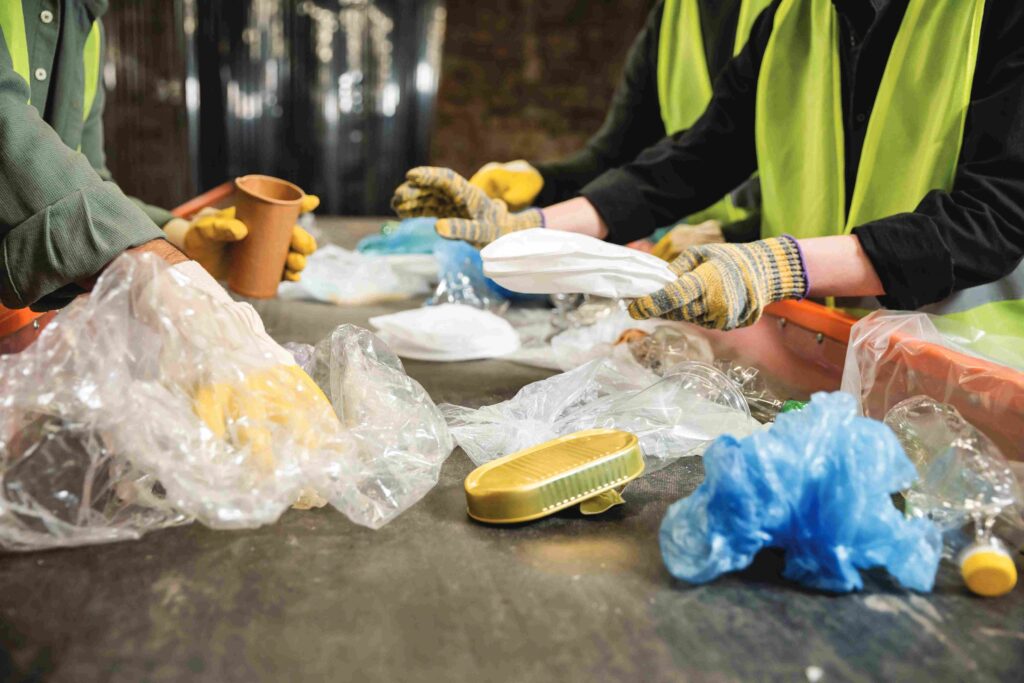
Eco-industrial parks are gaining traction as a critical model for sustainable industrial development, fostering collaboration among businesses to minimize environmental impact and maximize resource efficiency. At the recently concluded discussion on plastic waste during the Clean India Show 2024, Shilpi Kapur Bakshi, Vice President, Environmental Management Centre (EMC) and Member Circular Economy Committee on Solar PV Waste of MNRE shared opportunities and challenges of the innovative concept of integrating circular economy approaches into industrial parks. The session highlighted the potential of eco-industrial parks to drive sustainability and resource efficiency, particularly in the plastic industry. Here are some pointers…
The key principles of eco-industrial parks include:
• Resource Efficiency: Minimizing energy and water consumption, maximizing material reuse, and reducing waste generation
• Industrial Symbiosis: Facilitating the exchange of materials, energy, and by-products between businesses within the park
• Environmental Performance: Setting and achieving targets for reducing environmental impact, such as emissions and pollution
• Social and Economic Benefits: Creating local jobs, improving working conditions, and contributing to the economic well-being of the surrounding community.
Eco-industrial parks have served as a springboard for industrial development, and now there’s a push on making these parks circular.”
Integrating circular economy principles into eco-industrial parks is crucial for long-term sustainability. This involves:
• Renewable Energy: Utilizing solar, wind, and biomass energy sources to power park operations
• Water Circularity: Implementing wastewater treatment and reuse systems to minimize water consumption
• Material Recovery: Maximizing the recovery and reuse of materials, including metals, plastics, and other valuable resources
• Industrial Symbiosis: Fostering partnerships between businesses to exchange materials, energy, and by products.
Challenges and Considerations:
• Funding: Securing adequate funding for infrastructure development and technological advancements
• Collaboration: Fostering effective collaboration among businesses, government agencies, and other stakeholders
• Technical Expertise: Acquiring and retaining skilled personnel in areas such as renewable energy, waste management, and resource recovery
• Supply Chain Complexity: Managing complex supply chains for resource recovery and reuse.
Successful implementation of eco-industrial parks requires:
• Strong Policy Support: Clear policies and regulations that incentivize circular economy practices and support the development of sustainable infrastructure
• Robust Institutional Framework: Establishing effective governance structures, including clear roles and responsibilities for all stakeholders
• Capacity Building: Investing in capacity building programs for businesses and government officials to enhance their understanding of circular economy principles
• Pilot Projects: Implementing pilot projects to test and refine approaches and gather data for continuous improvement.
Numerous successful eco-industrial parks exist globally, including examples in South Korea, Thailand, Denmark, and China. In India, the Sun City Industrial Park in Gujarat is an example of a smart industrial park that is embracing technology to promote efficiency and growth.
Eco-industrial parks offer a promising pathway towards sustainable industrial development. By integrating circular economy principles and fostering collaboration among businesses, these parks can significantly reduce environmental impact, enhance resource efficiency, and create economic and social benefits for local communities. Continued research, development, and implementation of eco-industrial parks are crucial for achieving a more sustainable future.
 CIJConnect Bot-enabled WhatsApp
CIJConnect Bot-enabled WhatsApp












